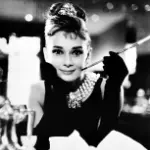There is a type of film whereby the title and trailer couldn’t pique your interest at all. Yet, because it involves a renowned director and some famous actors/actresses, you will still go and watch it, reluctantly of course. After watching the entire movie, you remain uninterested in delving deeper, even unwilling to discuss it further. Ridley Scott’s latest work, “Napoleon” falls into that category: there is absolutely nothing appealing about this version of Napoleon played by Joaquin Phoenix at all.

Ridley Scott has a penchant for depicting stories of celebrities or the wealthy, especially focusing on power struggles within the upper class. The protagonists he selects are generally magnates, kings, or ruling elites because these individuals are evidently more multifaceted, impossible to categorize simply as good or bad. Additionally, these characters, being affluent, often lead to films focused on them with luxurious appearance.
Ridley Scott's films often spotlight palaces, luxurious estates, and extravagant attire, suggesting a particular affection for this genre. He rarely delves into the lives of the poor or ordinary people. Consequently, his movies tend to emphasize opulent casts, grand mise-en-scène, lavish costumes, and settings. Even the brutal war scenes have become a regular feature. As a result, this film fails to offer anything groundbreaking or original, adhering closely to his established filmmaking style and practices.
However, the character he chose this time truly lacks appeal. Apart from everything you already know, perhaps the only additional insight this film offers is that Napoleon genuinely loves a woman, reciting numerous love letters to her. Despite divorcing her due to her inability to bear him a son, he maintains contact and continues writing to her. Thus, we learn that, like all men, he cares solely about procreation and territorial conquests, deeming everything else insignificant. Nevertheless, he remains infatuated at heart.
So, does this change anything? Will it alter our perception of him or suddenly spark interest in him as a person? Not at all. There have been many individuals like him in history and daily life. What's new? Nothing inspiring at all.
I recall the first time I heard about the love letters Napoleon wrote to his wife in the movie “Sex and the City.” Carrie borrows a book titled 'Love Letters of Great Men' from the library, and the first one she read is Napoleon's letter to Josephine. However, Mr. Big's reaction at the time is: typical sweet talk from a dwarf. Unexpectedly, during the time he was writing those love letters, his wife Josephine was involved with other men. This might be the only information this film provided that I was unaware of.

Essentially, the book Carrie picks up is trying to convey that even men busy with wars, shaping history, and changing the world wrote love letters, and experienced true love. However, hardly any of them ended up with their true love; instead, they opted for marriage to fulfill their ambitions.
Looking at Napoleon's whole life, this relationship didn't hold much significance. Whether it was this woman or someone else, it's a typical tale of marrying a wife, failing to produce a son, and, for the sake of the nation and posterity, remarrying... Such plots are prevalent in any royal court drama.

Nevertheless, Vanessa Kirby remains stunning in the film, while Joaquin Phoenix fails to make the character more appealing. One could almost feel any random actor could portray the role pretty well."








Share your thoughts!
Be the first to start the conversation.